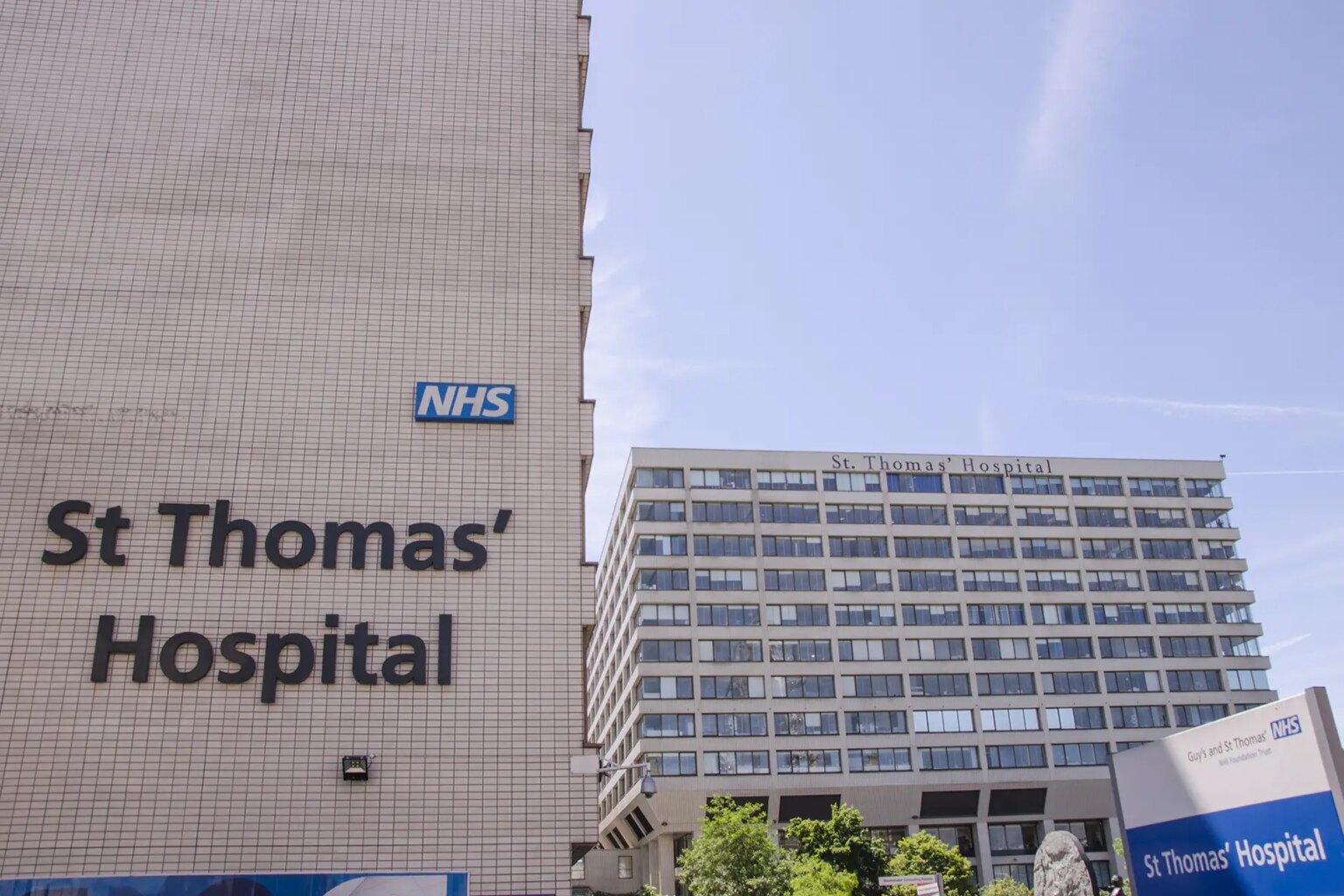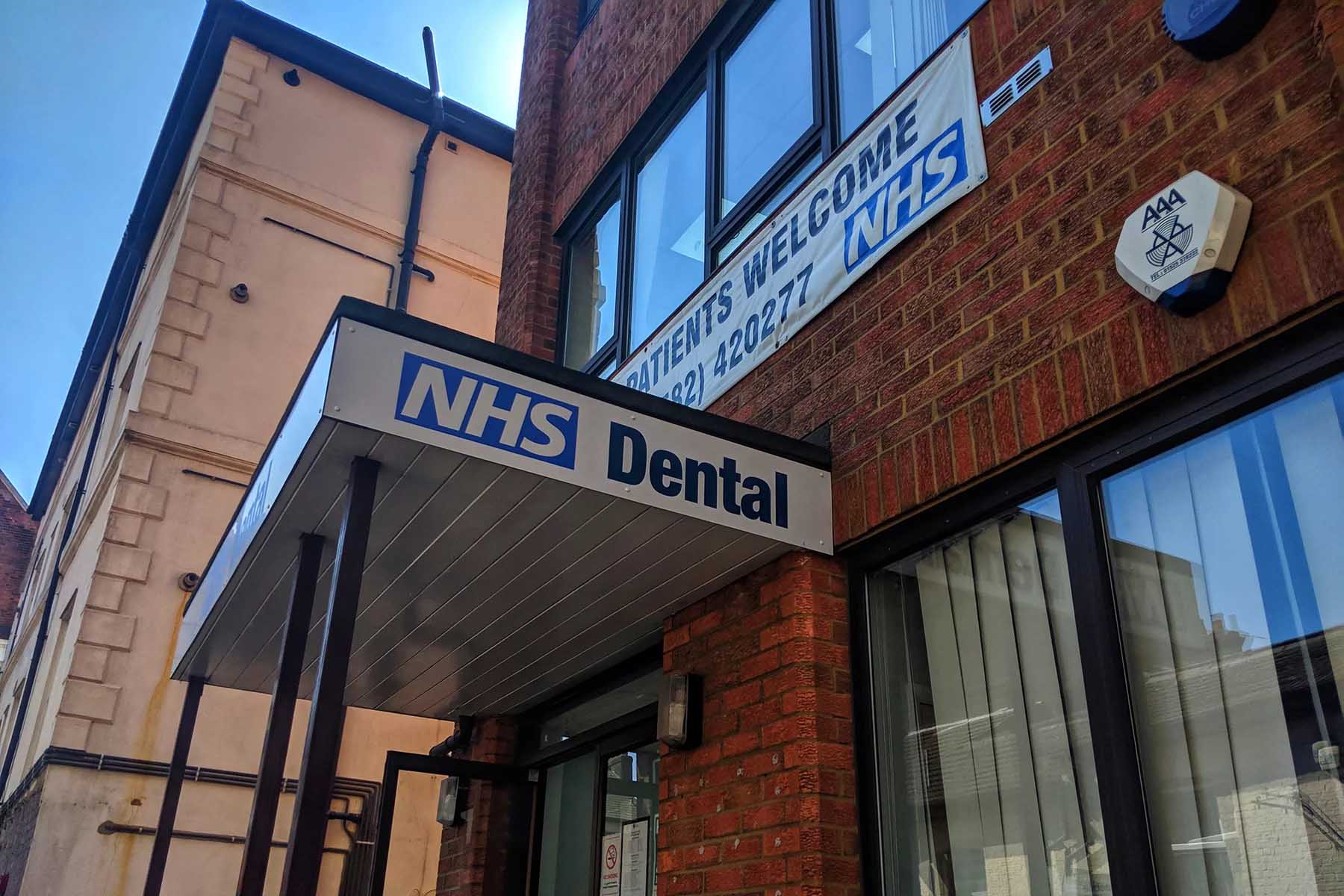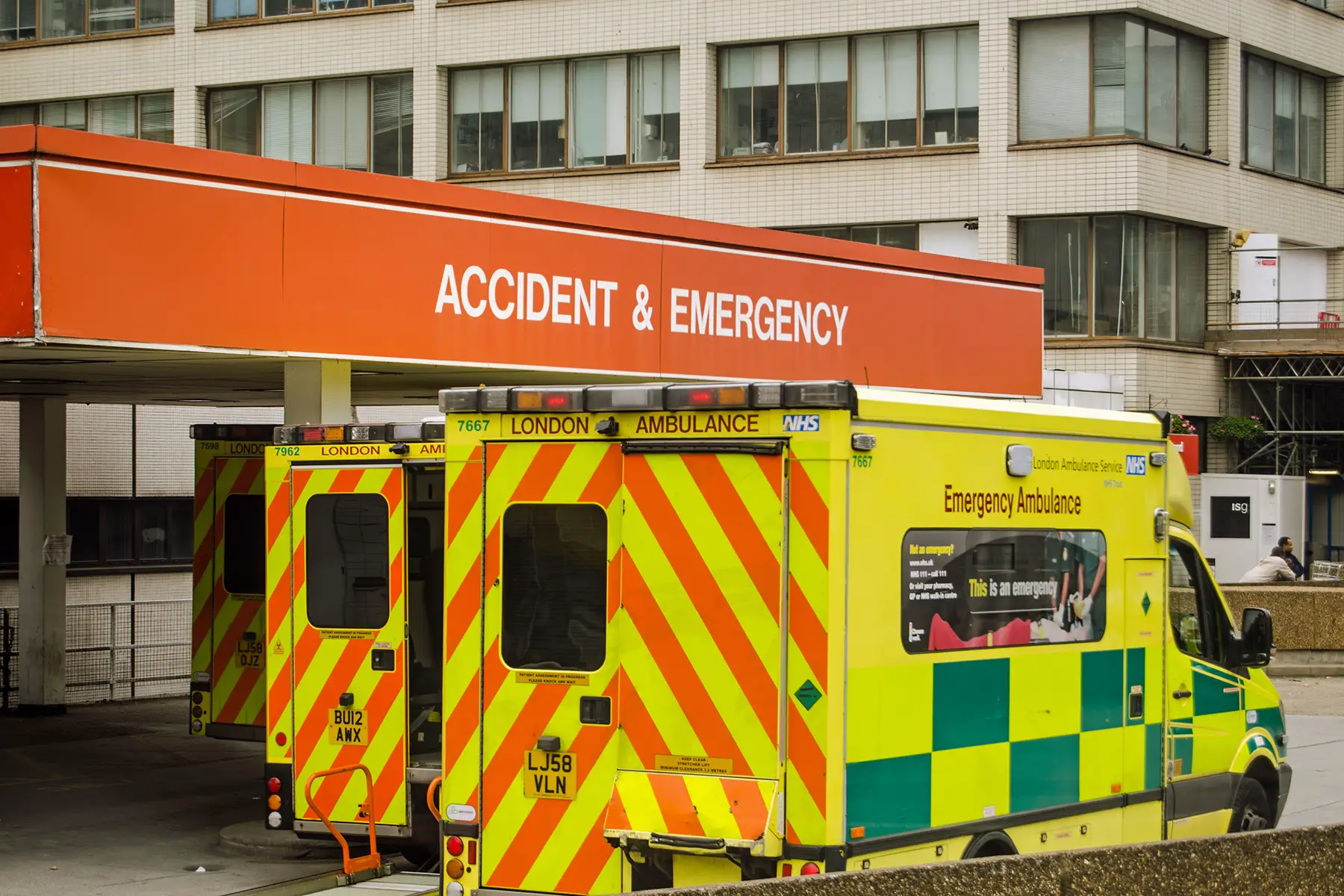All legal UK residents are entitled to free healthcare through the National Health Service. Unlike many other healthcare systems, it is funded through taxation rather than health insurance. That said, it is still possible and sometimes recommended to take out a private policy.
Find out about how the NHS works for expats and how to find the care you need in the following sections:
Cigna Global
Want access to the best private medical services in the UK? Speak to the healthcare professionals at Cigna Global today and find a policy that’s right for you. Take advantage of their global network of doctors, specialists, therapists and more with coverage tailor-made for you and your family. If you’re starting a new life in the UK, get peace of mind with Cigna Global.
How does healthcare work in the UK?
Each region of the UK has its own NHS body. This guide will focus mainly on the service in England, but you can find out more information about services in other regions on the websites for:
Does the UK have free universal healthcare?
Healthcare is free at point of service in the UK. That means that you don’t pay anything upfront to access medical care. However, there are a few charges that apply, including:
- charges for dental treatment, ranging from £27.40 for emergency treatment to £326.70 for Band 3 treatment
- prescription charges of £9.90 per item

Certain groups such as low earners and those aged over 60 are entitled to exemptions or reductions on NHS charges. This applies to both dental costs and prescription costs.
Is healthcare good in the UK?
Although you may hear Brits complaining about the NHS, the quality of care is generally quite good. However, accessing that care is often easier said than done.
Wait times are a major complaint among NHS users. It can sometimes take weeks or even months to get an appointment due to high demand and limited resources. This is especially the case for non-urgent treatments, referrals for specialists, and elective surgeries.
Furthermore, there are geographical disparities in care. People living in rural areas may find it harder to find facilities and face longer travel times.
Is healthcare in the UK public or private?
All NHS services are publicly funded, and the government is ultimately accountable, but there have been many structural changes to the NHS over the years.
Private companies and charities have become more involved in running services in recent years, making British healthcare more of a public-private partnership in terms of delivery.
Who administers healthcare in the UK?
The NHS in England is overseen by the Department of Health and Social Care, and it is responsible for commissioning primary care services such as doctors, dentists, and pharmacists. Since 2013, Clinical Commissioning Groups (CCGs) have had the responsibility of commissioning secondary care services in local areas, which are:
- planned hospital care
- rehabilitative care
- urgent and emergency care
- most community health services
- mental health and learning disability services
How is UK healthcare funded?
NHS healthcare is funded mostly through direct taxation. In 2023, the UK spent £292 billion on healthcare. This amounts to nearly 11% of annual GDP, making the UK one of the largest spenders on healthcare in Europe.
Who can access healthcare in the UK?
All UK residents, including expats, can access public health services for free. This is because it is a residence-based rather than an insurance-based system. That means that no matter your are, nationality, or employment status, you can use the NHS.
Can expats access public healthcare in the UK?
Nationals from outside the EU/EEA/Switzerland can access the NHS for free on the same basis as a British citizen if they’ve settled in the UK.
However, most internationals moving to the UK from outside the EU/EEA/Switzerland have to pay a yearly health surcharge for the duration of their visa:
| Up to six months | Longer than six months | |
| Students and visa applicants under 18 | £388 | £776 per year |
| Other visa applicants | £517.50 | £1,035 per year |
If you are a third-country national who has paid the surcharge, you can access NHS services on the same basis as everyone else. If you haven’t paid and don’t have any medical insurance, you’ll be charged at 150% of the standard NHS tariff for any care you receive.
However, people from countries with reciprocal healthcare agreements do not need to pay this charge, and certain groups qualify for an exemption. These include:
- UK government employees and war pensioners
- Refugees
- Detainees
- Ship workers
- NATO personnel
Tourists and temporary visitors
People visiting the UK from the EU or Switzerland can access necessary NHS care for free through their European Health Insurance Card (EHIC). Visitors from Norway must show their valid Norwegian passport to access free healthcare.
Other non-EU/EFTA nationals can access services such as emergency treatment, family planning services, treatment for infectious diseases, and treatments for conditions caused by violence or torture free of charge. However, they will need to take out health insurance to access other services.
Is there private healthcare in the UK?
Although everyone residing in the UK can use NHS care, “going private” is also an option. There are plenty of private healthcare providers in the country, and you can either take out health insurance or pay upfront to visit them.
Around 11.8% of UK citizens have private health insurance, most of whom gained it through their employers.
Why get private healthcare in the UK?
There are several benefits of private health insurance, especially if you have an urgent illness or injury.
Private patients can:
- access specialists more quickly
- avoid long waiting times
- use better facilities
Furthermore, in hospitals, private patients often enjoy private en-suite rooms rather than sharing wards with other patients.
SIP Medical Family Office
For access to private medical services, private health insurance is essential in the UK. As an independent broker working with the top international health insurance companies, SIP can advise on the best options for you based on a price and benefits comparison tailored to your requirements.
Healthcare is generally available on both a personal and family basis. Insurance premiums depend on your level of cover, lifestyle, age, and pre-existing medical conditions.
It’s also possible to pay for private healthcare on a one-off basis, should you need a specific type of treatment or an operation that has a very long waiting time on the NHS. Check the prices beforehand, as this option could cost you thousands of pounds depending on the treatment you require.
To find out more about private health insurance and healthcare in the UK, read our dedicated article.
Private and international healthcare providers in the UK
There are many private healthcare providers in the UK, and a range of insurers to choose from. These offer different types of medical plans – either full coverage or choose specific standalone add-ons.
Meanwhile, international visitors may opt for an international health insurance plan, especially if they need coverage in more than one country, or are only staying in the UK for a short time. The following insurers provide health insurance tailored to expats:
You can still use the NHS if you have private or international expat health insurance – these plans are simply a good option when speed or choice of provider is a priority.
How to register for healthcare in the UK
You register for healthcare in the UK via an NHS general practitioner (known as a GP). You can choose your own GP, but some practices (also known as ‘surgeries’) may refuse patients who don’t live in the local area. They may also refuse to register you if the practice is too full.
You use the GMS1 form, which you can download from the NHS website or get from your local practice. Along with the form, you should provide:
- valid ID, such as a passport
- proof of address, such as a UK utility bill
Upon registering, you should receive a medical card that can be used to document appointments. More information about how to register is available on the NHS website. This includes information about how to register as a temporary resident or homeless.
If you have questions or concerns, a healthcare management company like SIP Medical Family Office can help you get access to medical services in the UK as a foreigner.
Overview of primary healthcare in the UK
Healthcare professionals
Doctors and medical specialists
Your local general practitioner (GP) is your first point of contact for most medical queries aside from emergencies. They can provide assessments and advice for most illnesses and complaints, prescribing medication, or referring to a specialist if necessary.
Most GP surgeries operate by appointment. However, many also offer a walk-in service, usually for a couple of hours in the morning. Many surgeries offer online booking services. GPs usually open Monday-Friday, and if you need more urgent care, you can call an out-of-hours number, or 111 for urgent but non-emergency advice.
GP appointments in the UK are short, usually lasting around 10 minutes; as a result, it’s important to be concise about your problems. If you need a referral for a specialist at a hospital, your GP will provide a referral letter. Waiting times vary significantly from practice to practice.
See our guide on doctors in the UK for more detailed information.
Women’s healthcare
The NHS provides a range of healthcare services for women. You can access these through GPs or well woman clinics. Women’s healthcare in the UK includes:
- gynecology services
- free sexual health services
- free contraception
- maternity care services
- IVF treatment for women under 40 who meet certain criteria
- screening programs for cervical and breast cancer
Abortion is legal in most parts of the UK if it is carried out within the first 24 weeks of pregnancy. In certain circumstances, abortions are permitted at a later stage in the pregnancy than this. However, there are stricter rules in place in Northern Ireland. Here, abortion is only permitted in the first 12 weeks, later in situations where there is a risk of injury or to the life of the mother or baby.
Information on childbirth and maternity care can be found in our guide to having a baby in the UK.
Children’s healthcare
Pediatricians are available through the NHS, and you can find pediatric services on their website. You can register your child with your family GP. This will enable you to access specialist children’s healthcare services as needed.
Community healthcare services for families and children are available through local Children’s Centers. NHS nurses and other children’s healthcare professionals offer care and advice in areas such as nutrition, healthy weight, and breastfeeding. In addition, programs around healthy eating, physical activity, and mental well-being are delivered through schools (e.g., Mytime Active).
There is a free vaccination program for children in the UK. The vaccination schedule includes:
- 6-in-1 vaccine against diphtheria, tetanus, whooping cough, polio, hepatitis B, and haemophilus influenzae type B;
- Measles, mumps, and rubella (MMR) vaccine;
- Children’s flu vaccine
Find out more in Expatica’s guides to children’s health and vaccinations in the UK.
Dentists in the UK
Dental care is available either through the NHS or privately, but in both instances, you’ll usually need to pay. Free dental care is available for those aged under 18 (or under 19 if in full-time education), pregnant women, and people who have had a baby in the last 12 months.
How much you’ll pay for your dental care depends on the band of care you require. In England, the structure works like this:
- First band (£27.40): Dental examinations, scale, and polish if required
- Second band (£75.30): Also covers fillings, root canal work, and removal of teeth
- Third band (£326.70): Also covers crowns, dentures, bridges, and lab work
- Emergency treatment (£27.40): Covers emergency treatments such as temporary fillings, emergency partial root canals, and managing knocked-out teeth
Prices for NHS dental care vary significantly in Scotland (£0–364.96), Wales (£20–260), and Northern Ireland (£0–165.64). You can find out the full details by clicking on the link for each country.
See our guide to dental care in the UK for full information.
Healthcare facilities
Hospitals in the UK
Hospitals provide secondary care services in the UK. You’ll need a referral from a GP to receive treatment in a hospital in situations other than emergencies.
There are two types of hospitals in the UK: NHS hospitals, where care is free, and independent hospitals run by private companies or charities, which usually charge. Public hospitals are run by NHS Trusts.
Most general hospitals have accident and emergency (A&E), maternity services, surgery, elderly care, and outpatient services. There are also a number of specialist hospitals, e.g., eye hospitals, orthopedic hospitals.
You can find more information in our guide to hospitals in the UK.
Health centers and clinics
There are around 80 NHS walk-in centers providing healthcare in the UK that are open 365 days a year and outside office hours. Walk-in health centers in the UK are set up to deal with a range of minor injuries and illnesses. Some centers offer access to doctors and nurses, but do not offer a full GP service, and some do not treat young children.
Conditions treated in walk-in centers include infections/rashes, fractures, stitching and dressing of minor cuts, burns, bruises, and vomiting and diarrhea issues.
Although you should sign up with a GP as soon as possible after arriving in the UK, visiting a walk-in center is an option if you haven’t yet done so.
Pharmacies in the UK
Pharmacies in the UK are usually quite easy to find; they’re often in town centers or even next to your GP surgery. In addition to independent pharmacies, large retail stores and supermarkets such as Boots and Tesco sometimes have their own pharmacies.
For some types of medicine, you’ll need a prescription from your NHS doctor. You usually pay a flat charge for your prescriptions unless you are exempt from paying. These charges apply only to England, as prescription fees have been abolished in Scotland, Wales, and Northern Ireland.
Pharmacies are usually open until around 22:00–23:00. Some in larger cities are open 24 hours a day. You can find a local pharmacy on the NHS website.
Specialized healthcare
Mental healthcare
Mental health services can be accessed for free on the NHS. Some require a GP referral, while others allow people to refer themselves.
Services available include:
- psychological therapy and counselling services
- drug and alcohol services
- children’s mental health services
- eating disorder services
Mental healthcare provision available in the UK is generally of high quality, but sometimes difficult to access. A 2024 report from mental health charity Mind suggests that over two million people are currently on waiting lists for NHS support.
These services face pressures such as understaffing, varying quality and facilities across the country, and a high bed occupancy rate.
You can find information about what is available and how to access it on the NHS website. Also, see our informative guide to mental healthcare in the UK.
Alternative medicine in the UK
You can find a range of alternative therapies in the UK. However, availability through the NHS is limited.
When choosing a provider, make sure they belong to a regulatory body such as the Federation of Holistic Therapists. Treatments available include:
- osteopathy
- chiropractic treatment
- acupuncture
- reiki
- herbal medicine
There are also many charities involved in delivering healthcare in the UK. Some of these are commissioned by the NHS.
Practical medical phrases in the UK
You’ll undoubtedly be shocked to learn that the NHS uses English as its go-to language, and you’ll not likely need to speak Irish, Scottish-Gaelic, or Welsh. But it’s fun to learn, so here are some useful words and phrases:
| English | Irish | Scottish-Gaelic | Welsh |
| Help! | Cabhair! | Cuidich! | Help! |
| Call an ambulance! | Glaoigh ar otharcharr! | Cuir fòn gu carbad-eiridinn! | Ffoniwch ambiwlans! |
| I’ve had an accident | Tá timpiste agam | Tha tubaist air a bhith agam | Rwyf wedi cael damwain |
| I feel like I’m dying | Is dóigh liom go bhfuil mé ag fáil bháis | Tha mi a’ faireachdainn gu bheil mi a’ bàsachadh | Rwy’n teimlo fy mod yn marw |
| doctor’s office | oifig an dochtúra | oifis an dotair | swyddfa’r meddyg |
| pain | pian | pian | poen |
| headache | tinneas cinn | ceann goirt | cur pen |
| stomach ache | pian boilg | cràdh mineach | poen stumog |
| fever | fiabhras | fiabhras | twymyn |
| cough | casacht | casadaich | peswch |
| food poisoning | nimhiú bia | puinnseanachadh bìdh | gwenwyn bwyd |
| heart attack | taom croí | grèim cridhe | trawiad ar y galon |
| prescription | oideas | oideas | presgripsiwn |
| vaccine | vacsaín | banachdach | brechlyn |














